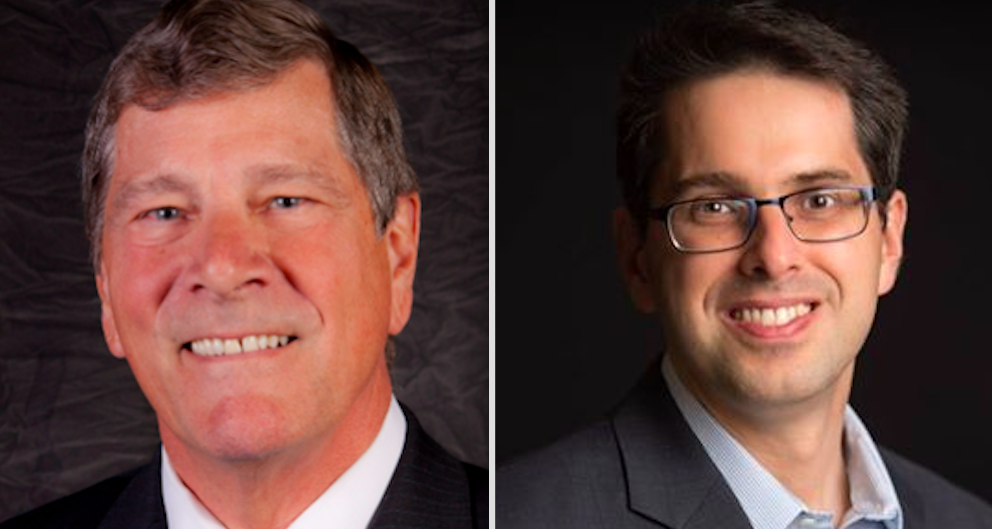Over the last decade, enthusiasm for – and commitment to – Corporate Social Responsibility among CEOs and other business leaders has grown significantly. And with good reason. CSR not only benefits communities; it elevates the companies that participate in it through improved talent acquisition, enhanced reputation, and the creation of stronger markets.
Will that momentum continue in the years and decades ahead with the next generation of leaders? According to two academics at the University of Connecticut School of Business, both of whom are involved in the work of the Satell Institute, the answer is a definitive yes. Not only are schools like UConn putting an increased emphasis on CSR, but today’s students – tomorrow’s CEOs — are hungering to make a difference.
“Our students have repositioned their thinking and their aspirations in a serious way,” says John Elliott, longtime dean of UConn’s business school and a member of the Satell Institute’s Advisory Board. “So, it’s a collaboration between what our students want and need and care about and what we as institutions think.”
“Compared to 10 years ago, today’s students are more engaged and more connected with the world around them,” says Robert Bird, professor of business law at UConn and a member of SI’s International Research Council. “They’re increasingly expecting more from their jobs than a paycheck. They’re looking for meaning, they’re looking for mission, and they’re looking for impact.”
CSR on Campus
At UConn, Elliott says the emphasis on responsible corporate behavior has only grown over the last couple of decades, in the same way it’s grown in the corporate community in general.
“The notion that the purpose of the corporation is to maximize shareholder wealth is something the financial sector has historically claimed and sold hard,” Elliott notes. “But for the last 10 or 20 years, we’ve had an effort to reposition the thinking about that in business schools. You can call it Corporate Social Responsibility. You can call it the triple bottom line. You can call it a whole lot of things. But I would say that schools have repositioned that thinking in a serious way.”
That repositioning has displayed itself in a variety of ways, starting with what happens in the classroom. Not only is CSR part of individual classes within the business school, but UConn offers a minor called Social Responsibility and Impact in Business, which looks at the ways businesses influence, and can improve, the communities around them. “When I teach CSR, I will mention that practicing social responsibility can have a return on investment if it’s deployed well,” says Bird. But, he notes, that’s just the first step. He challenges students to think about how companies can impact all their stakeholders, whether it’s through philanthropy and supporting nonprofits or their interactions with the supply chain. In its early days, Bird says, CSR focused on what companies should avoid doing in order to not harm the surrounding world. Today, it’s more focused on what companies can and should do to benefit the surrounding world.
The other way that CSR has become a presence in business schools is by academic leaders and accomplished alumni talking about it. “By having the dean and associate deans talk about CSR meaningfully, what we’re doing is norm setting. People look up for norm values,” says Bird.
In that way, he notes, what business school leaders are doing is supporting a trend that CEOs have recognized helps both business and the greater community. It’s also consistent with what the Satell Institute and its founder, Ed Satell, do: encourage CEOs to broaden their thinking about their constituencies to include their employees, customers and communities. As Bird puts it, “Ed Satell is norm setting.”
Impact…and the Future
Elliott believes the way students are engaging with CSR in school is having an impact when they get out in the workplace and begin their careers. “We know from our employer connections that young employees’ attitudes are hugely important and that companies are responding actively by creating environments that the graduates are more comfortable in,” he says.
Indeed, both experts say it’s that bottom-up drive for better, more responsive communities that has them convinced Corporate Social Responsibility will thrive even more in the decades ahead.
And experience tells him, Elliott says, that when individual companies and the business community in general get behind something, their power to improve the world is unquestioned.
“I was recently reminded that, 50 years ago, there was a hole in the ozone layer,” he says. “And there was despair. At the time, I was at Cornell, and Cornell is funded by the Johnson Wax Company. It’s a family business. They had a lot of aerosol-propelled products, and they made the decision as a company to withdraw the ozone-threatening ingredient from their propellants and to change the technology. A couple of years later the government followed suit and mandated it.
“I just saw an article that said the ozone layer is nearly back to normal,” he continues. “An individual action can sometimes make a difference, and it’s the purposeful commitment of people who care that can lead those things to fruition. I’m a cautious optimist that at the end of the day, there are people doing the right thing at the right time to get us to the right place.”


